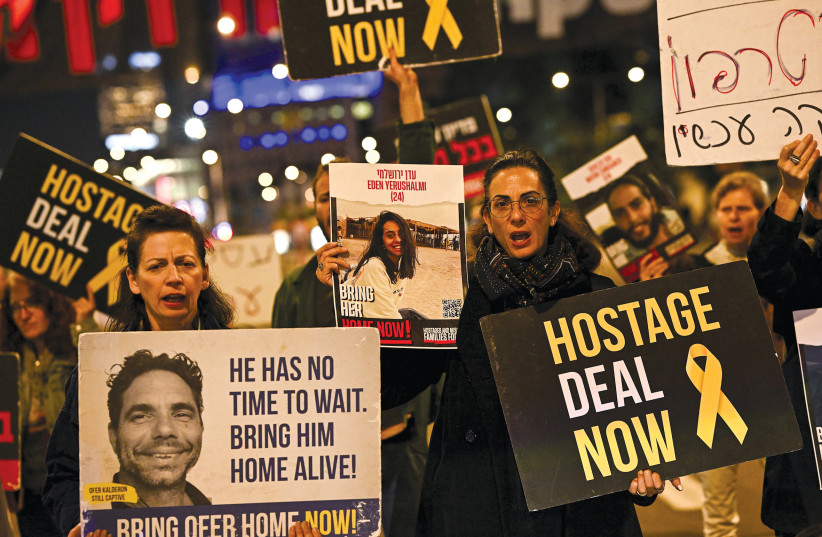A key obstacle to reaching a ceasefire agreement with Hamas is Israel’s insistence on maintaining control over the Philadelphi Corridor and the Rafah Crossing, along the Egyptian border. Prime Minister Benjamin Netanyahu refuses to sign any deal that doesn’t guarantee Israel’s continued presence in these locations. This stance is driven by the fact that the corridor – particularly its underlying tunnels – and the Rafah Crossing serve as crucial military and economic lifelines for Hamas, in the absence of a seaport or airport.
The current conflict has highlighted the tunnels’ critical role in Hamas’s military build-up. Moreover, taxes levied on goods smuggled through these passageways have significantly bolstered Hamas’s finances. One researcher estimated that as early as 2008, monthly tunnel-derived income reached $35 million.
While the exact number of tunnels and the volume of trade they facilitated remain unclear, the implications for Hamas – or any future governing entity in Gaza – underscores the need for rigorous oversight of border crossings.
The tunnel issue is longstanding, and Israel has consistently regarded it as a serious threat. Since disengaging from Gaza and the Philadelphi Corridor in 2005, and especially following Hamas’s takeover of Gaza in 2007, Israel has regularly shared intelligence with Egypt about tunnel activities and smuggling operations.
WikiLeaks documents reveal repeated Israeli complaints, both directly to Egypt and through US channels, about insufficient Egyptian efforts to combat this phenomenon. In the summer of 2008, former Egyptian president Hosni Mubarak informed American officials that Egypt had destroyed over 280 tunnels, emphasizing that countering tunnels was “the job of Egypt and Israel, not just Egypt.”

Previous operations in Gaza
Following Operation Cast Lead in late 2009, Egypt reported destroying more than 200 tunnels, yet Israeli concerns persisted. President Abdel Fattah El-Sisi, upon assuming power in 2014, also intensified efforts to demolish and seal tunnels. Nevertheless, Hamas’s motivation to dig and profit evidently outpaced Egypt’s resolve to close these breaches.
Several factors contributed to this situation. The peace agreement and a 2005 addendum mandated that only border guards and police units, rather than well-trained and equipped army units, be stationed on the Egyptian border.
Egypt’s post-2011 Arab Spring upheaval spawned a jihadist threat in Sinai, demanding immediate military attention. Notably, Israel provided crucial military and intelligence support to Egypt in addressing this challenge. Local actors, including Bedouins and, potentially, some security elements, found financial incentives in cooperating with Hamas.
The possibility of ideological and political support for Hamas among certain factions cannot be dismissed.
Despite these complications, both Israel and Egypt shared a strategic interest in curbing Hamas’s military and economic capabilities. Following Operation Cast Lead, then-US assistant secretary of state for Middle Eastern Affairs David Welch noted, “Egypt and Israel have a common problem: Hamas.”
It’s no coincidence that Operation Protective Edge in 2014 lasted over 50 days with minimal Egyptian interference.
The current Gaza war has presented numerous challenges for Israeli-Egyptian relations, particularly with the IDF’s incursion into Rafah and seizure of the crossing – a significant symbol of sovereignty for Hamas and Palestinians.
To date, both states have adeptly managed their diplomatic ties. Egypt continues to mediate between Israel and Hamas on hostage issues and war termination – with Israeli delegations frequently visiting Cairo.
If pre-war discrepancies existed between Egypt’s strategic interests and ground-level tactics, the conflict has underscored the interconnectedness of strategic and tactical concerns in securing the Egypt-Gaza border.
Recent reports indicate that Israel and Egypt are exploring the deployment of sensors and other technologies along the Gaza-Egypt border to enable Israeli monitoring of corridor and crossing activities, addressing tunnel and smuggling issues. Importantly, Israeli withdrawal doesn’t preclude its ability to thwart attacks or smuggling, as evidenced by its long-standing operations in Area A of the West Bank, nominally under Palestinian Authority (PA) security control.
The hostage issue is, fundamentally, a humanitarian and moral imperative that must take precedence. Presenting the Philadelphi Corridor and Rafah Crossing as non-negotiable is not only ethically questionable but also strategically flawed, given that the security risks of Israeli withdrawal are not insurmountable.
This leads to the conclusion that Netanyahu’s opposition serves more as a pretext for rejecting a deal rather than a substantive argument.
The writer is a board member of Mitvim –The Israeli Institute for Regional Foreign Policies and teaches in the Department of Islamic and Middle Eastern Studies at the Hebrew University of Jerusalem.
